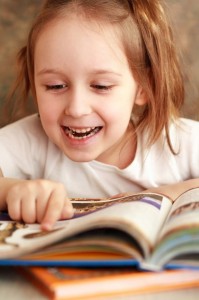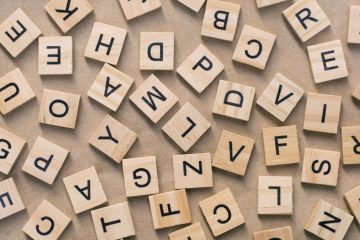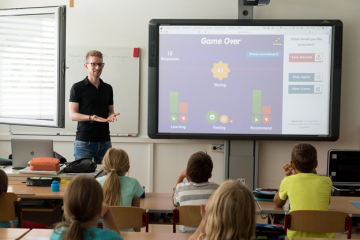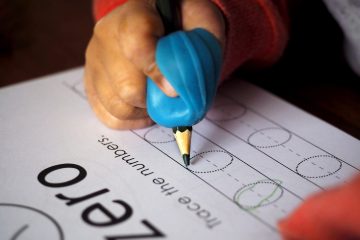 Whether you’re just beginning to read to your child in the womb, helping him get ready for Kindergarten, or preparing him for college, the same question will apply when it comes to literacy: What kinds of books should my child be reading? Many a concerned parent frets over this question, and the answer may very well differ from child to child and from family to family. If you ask me, pretty much any book with pages will suffice! That may be an exaggeration, of course, but the underlying message rings true—what your child is reading doesn’t matter nearly as much as the simple fact that he is reading!
Whether you’re just beginning to read to your child in the womb, helping him get ready for Kindergarten, or preparing him for college, the same question will apply when it comes to literacy: What kinds of books should my child be reading? Many a concerned parent frets over this question, and the answer may very well differ from child to child and from family to family. If you ask me, pretty much any book with pages will suffice! That may be an exaggeration, of course, but the underlying message rings true—what your child is reading doesn’t matter nearly as much as the simple fact that he is reading!
Having said that, there are legitimate concerns over what kind of reading material we offer our children. After all, if we can encourage them to read something (and maybe even like it), then we want it to be something good, right? Of course! Here are a few tips to help you and your youngster make good choices when it comes to selecting books:
When most parents think of the “right” kinds of books for their children, they think about things such as educational value, reading level, and even length. While these may be important factors, they don’t matter at all unless your child actually reads the book. I can tell you from my teaching experience that you cannot force a child to read a book. You can hand it to them, talk about how great it is, assign it, beg them to read it, but you cannot force them. That’s why engagement is key. Choose books that your child will enjoy, so that they will actually want to read it.Need help? Check out this site to read book reviews of some of the latest releases in children’s literature.
The best reading material for proficient readers in training are books that are just slightly above their reading level. These books aren’t so difficult that the child can’t enjoy them, but they’re difficult enough that they will push the child to read at their very best while simultaneously learning some new vocabulary in the process. Keep in mind, though, that struggling readers or early emerging readers read best at a comfortable, independent reading level where most words are recognizable, unless you plan on reading the book with them.
Non-fiction books are often overlooked by parents, but can be great sources of information for youngsters, especially if they address topics that your child is already interested in and use an engaging voice. When most people think of non-fiction books, voluminous encyclopedias come to mind, but there are some great titles on the market right now for kids that are easily digestible, and yes—even interesting! Need a place to start? Check out the School Library Journal’s list of last year’s best non-fiction titles for children.
Remember that there’s a reason you’re encouraging your child to read in the first place. It’s not just because reading is a school requirement, or life requirement for that matter. It’s because reading is truly pleasurable, and with the right books, can even be life-changing! Let your child choose titles about famous people he admires, characters he identifies with, or a hobby he enjoys. Give him the gift of reading and inspiration all rolled into one!
What types of books do you recommend? We’d love to hear from you!


